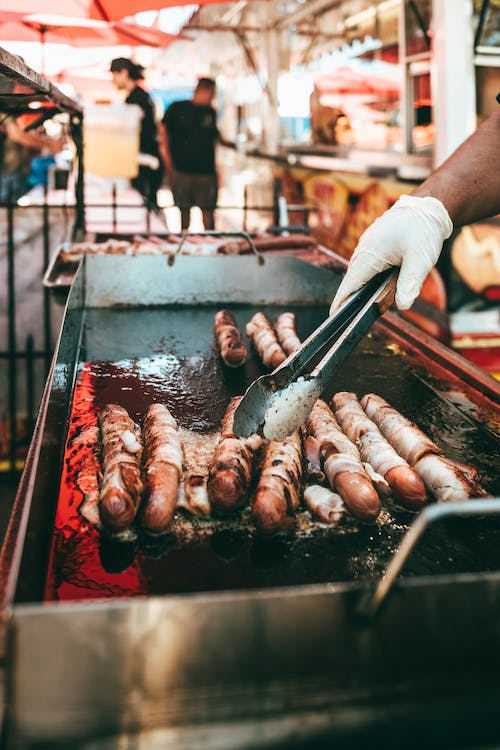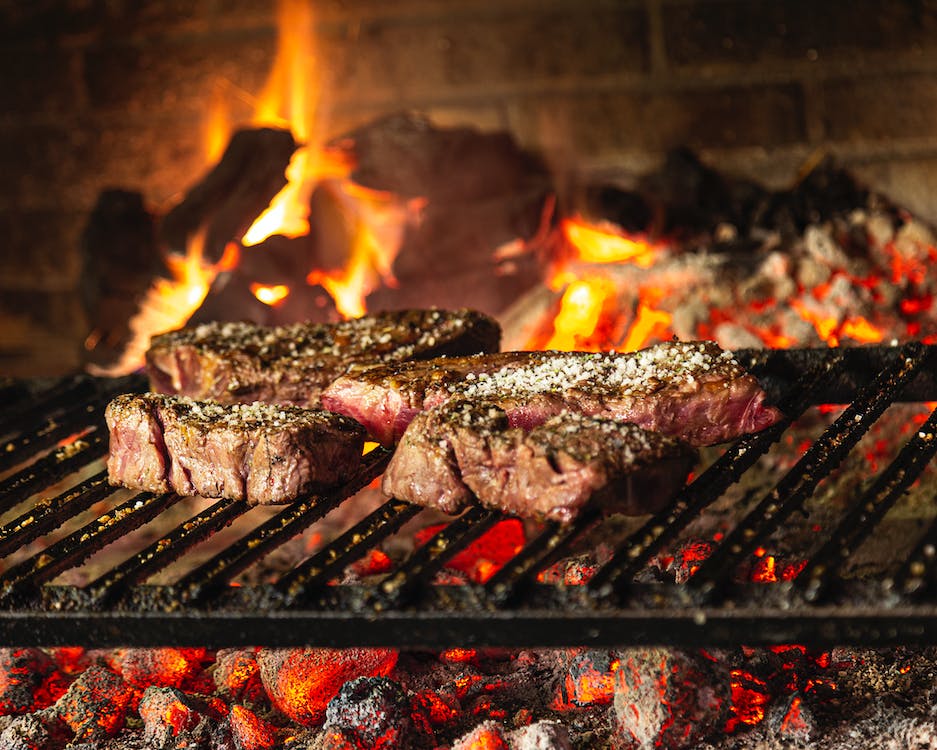A backyard barbecue with friends and family on a warm summer evening is a cherished tradition for many. Central to this experience is the trusty charcoal grill, which provides the smoky flavor and sear that other cooking methods cannot replicate. However, like any piece of equipment, charcoal grills require regular care and maintenance to ensure they continue to perform at their best. In this article, we will explore how to extend the lifespan of your charcoal grill so you can enjoy countless cookouts for years to come.
Charcoal grills have been a staple in American backyards for generations. Their simplicity, affordability, and ability to infuse food with that signature smoky flavor have made them a beloved cooking tool. Whether you are grilling burgers, steaks, vegetables, or even experimenting with more elaborate recipes, a charcoal grill provides a unique culinary experience.
However, to keep your grill in prime working condition and avoid the need for costly replacements, it is essential to invest time and effort into proper maintenance. With the right care, your charcoal grill can become an enduring part of your outdoor cooking routine.
The Importance of Proper Maintenance
Why is maintenance so crucial for your charcoal grill? First and foremost, it is about safety. Grills can become fire hazards if not properly maintained. The grease, debris, and ashes buildup can lead to unexpected flare-ups or even dangerous situations. Additionally, a poorly maintained grill can negatively impact the taste of your food. A grill with rust, deteriorating grates, or clogged vents may not distribute heat evenly, resulting in unevenly cooked meals.
Below are several essential factors underscoring the significance of regular upkeep for your charcoal grill.
Corrosion Prevention:
Charcoal grills are usually made from metal, which can be prone to rust and corrosion as time passes, especially when subjected to the elements. Consistent cleaning, seasoning, and appropriate storage can effectively deter corrosion and extend your grill’s durability.
Enhances Effective Functionality:
Proper maintenance of a charcoal grill ensures it operates with greater efficiency, resulting in improved heat distribution and consistent cooking outcomes. Essential maintenance tasks such as cleansing the grates, clearing ash and debris, and unblocking vents play a pivotal role in optimizing your charcoal grill’s performance.
Enhances Safety:
Safety should consistently take precedence when engaging in grilling activities. Routine maintenance aids in recognizing and rectifying potential safety risks, like blocked vents that may lead to inadequate airflow and flare-ups. Maintaining a clean and well-kept grill diminishes the chances of accidents and ensures a secure grilling experience.
Extends Durability:
Similar to other appliances and machinery, consistent upkeep can elongate the lifespan of your charcoal grill. By maintaining cleanliness, promptly addressing problems, and replacing worn components as necessary, you can avert premature deterioration and extend the overall longevity of your grill.
Saves Money:
Adequate upkeep can also lead to long-term cost savings. Consistent cleaning and maintenance can be a preventive measure against expensive repairs, part replacements, or the need to replace the entire grill. Investing in regular maintenance is a more economical choice compared to prematurely replacing a neglected and damaged grill.
Preserves Flavor:
The taste of your food plays a crucial role in the grilling experience, and a properly cared-for charcoal grill can contribute to preserving and elevating that genuine smoky flavor. Maintaining a clean grill devoid of debris guarantees the optimal flavor output from your charcoal grill.
Tips for Extending Your Charcoal Grill’s Lifespan
Now that we understand why grill maintenance is so important, let us delve into practical tips to help you extend the lifespan of your charcoal grill.
1. Keep it Clean
Cleaning your grill is one of the most important aspects of maintenance. After each use, allow the grill to cool down slightly, then use a grill brush to scrub the grates. This removes food residue and prevents the buildup of carbon deposits, which can affect the flavor of your food. Empty the ash catcher regularly to ensure proper airflow and prevent ash buildup.
At least a few times a season, give your grill a deep clean. Remove the grates and heat deflectors if possible, and wash them with warm, soapy water. Clean the inside of the grill with a grill-specific cleaner or a mixture of vinegar and water. Scrub off any rust spots with a wire brush and repaint with high-temperature grill paint to prevent further corrosion.
2. Check for Rust
Rust is a common issue with charcoal grills, especially if they are left exposed to the elements. Regularly inspect your grill for signs of rust, paying special attention to the firebox, grates, and any other metal components. If you notice rust, remove it by scrubbing with a wire brush or using a rust remover product. Afterward, apply a high-temperature paint to protect the metal and prevent further rusting.
3. Store it Properly
If possible, store your charcoal grill in a dry, sheltered location when it is not in use. Exposure to rain, snow, and extreme temperatures can accelerate wear and tear. If you do not have a covered storage option, consider investing in a grill cover designed for your specific model. These covers are relatively inexpensive and can significantly extend the life of your grill by protecting it from the elements.
4. Replace Worn or Damaged Parts
Over time, certain parts of your charcoal grill may wear out or become damaged. The most common components to replace are the grates, which can deteriorate from exposure to high heat and moisture. Damaged or corroded grates can lead to uneven cooking and affect the flavor of your food. Fortunately, replacement grates are readily available and relatively affordable.
Additionally, check the integrity of the charcoal grate, ash catcher, and any other essential components. If you notice any cracks, warping, or significant wear, it’s advisable to replace these parts to ensure safe and efficient grilling.
5. Season Your Grill
Just like cast iron pans, grates and other metal components of your grill can benefit from seasoning. Seasoning not only helps prevent rust but also creates a non-stick surface for your food. To season your grill, follow these steps:
- Clean the grates thoroughly to remove any rust, debris, or residual grease.
- Coat the grates and other metal components with a thin layer of vegetable oil or a high-temperature cooking spray.
- Heat the grill to a high temperature (around 400-500°F) and let it run for about 15-30 minutes to allow the oil to penetrate the grates and create a protective layer. This helps to prevent food from sticking to the grates and makes them easier to clean for future use.
- Turn off the grill and let it cool down.
Repeat this process at the beginning and end of each grilling season to keep your grates in excellent condition.
6. Replace Charcoal Grates
The charcoal grate, which holds the charcoal or briquettes, is subjected to high temperatures and direct contact with the fuel source. Over time, it can warp or develop holes. If your charcoal grate becomes damaged, it is essential to replace it promptly. A damaged charcoal grate can lead to uneven heating and potentially dangerous flare-ups.
7. Monitor Ventilation
Proper ventilation is crucial for maintaining the desired cooking temperature and ensuring safety. Check the vents on your grill regularly to ensure they are functioning correctly. Remove any obstructions or debris that may be blocking the airflow. If your grill has adjustable vents, make sure they move freely to control the heat effectively.
8. Use High-Quality Charcoal and Accessories
Invest in high-quality charcoal and accessories for your grill. While it may be tempting to opt for the cheapest options, better-quality charcoal burns more evenly and produces less ash, making maintenance easier. Additionally, using quality grilling tools, such as tongs and spatulas, can help prevent damage to your grates and other grill components.
9. Practice Safe Grilling
Safety is paramount when grilling, and safe grilling practices can also contribute to extending your grill’s lifespan. Avoid overloading the grill with excessive charcoal, as this can cause the firebox to overheat and potentially damage the grill. Be mindful of flare-ups and use a grill brush or long-handled tongs to move food away from direct flames. Following safe grilling practices reduces the risk of accidents that could lead to damage.
Conclusion
Your charcoal grill is more than just a piece of cooking equipment; it’s a vessel for creating cherished memories with friends and family. By following these maintenance tips, you can ensure that your grill remains in excellent condition and continues to serve as the centerpiece of your outdoor cooking adventures for years to come.
Remember to clean your grill regularly, inspect for rust, store it properly, and replace worn or damaged parts as needed. Seasoning your grill and using high-quality charcoal and accessories will also help maintain its performance. By practicing safe grilling and taking care of your grill, you can enjoy delicious meals and memorable gatherings while extending the lifespan of your beloved charcoal grill. With a little TLC, your grill will continue to be a source of delicious food and great memories for seasons to come.


